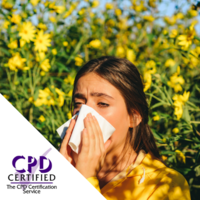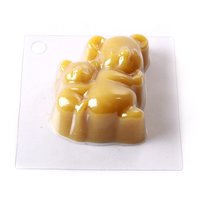Description
Gluten Intolerance and Its Symptoms Gluten is a protein naturally found in wheat and other grains. Many foods, including pasta, cereal, and beer, as well as vitamins and cosmetics, contain grain and thus gluten. Gluten acts as a binder, holding food together. For instance, without gluten, pizza dough would easily tear. Most people tolerate gluten well, as it can be beneficial for the good bacteria in the gut. However, some people experience serious side effects after consuming gluten, indicating gluten intolerance. When you have gluten intolerance, you might feel sick after eating products containing gluten. Gluten intolerance is one of the most prominent autoimmune diseases, affecting about 1% of the world’s population. Common Symptoms of Gluten Intolerance The most common symptoms of gluten intolerance and celiac disease include: Diarrhea or constipation Difficulty gaining weight Fatigue Joint pain Infertility Flatulence Nausea Skin problems, such as rash Headache Gluten intolerance can also lead to mental health issues, includin Anxiety Concentration problems Depression Research has also established a link between celiac disease and both infertility and menstrual cycle changes in women. Gluten Intolerance vs. Celiac Disease: Understanding the Difference Gluten intolerance shares similarities with celiac disease and wheat allergy. People with gluten sensitivity and those with celiac disease experience similar symptoms. However, there’s a crucial distinction. Celiac disease triggers the body to treat gluten as a harmful invader, leading to damage in the digestive tract. It’s caused by an abnormal gene, which is not present in those with gluten sensitivity. Individuals with gluten sensitivity or intolerance may not need to follow a strictly gluten-free diet. In contrast, people with celiac disease must avoid gluten completely, as even the smallest amount can cause long-term harm. Common Nutrient Deficiencies in Celiac Disease Celiac disease can lead to various nutrient deficiencies due to the damage it causes in the small intestine, affecting nutrient absorption. Key nutrients that individuals with celiac disease often find themselves deficient in include: Iron : Reduced absorption can lead to anemia, a common issue in celiac disease. Calcium and Vitamin D : Essential for bone health, deficiencies in these nutrients increase the risk of osteoporosis. Folate and Vitamin B12 : Important for red blood cell formation, their deficiency can also result in anemia. Zinc : Necessary for immune function and skin health, zinc deficiency is common in individuals with celiac disease. Vitamin B6: Crucial for metabolism and brain function, a lack of Vitamin B6 can affect overall health and well-being. Identifying and addressing these deficiencies through diet or supplementation is crucial for managing celiac disease and improving quality of life.






Reviews
There are no reviews yet.